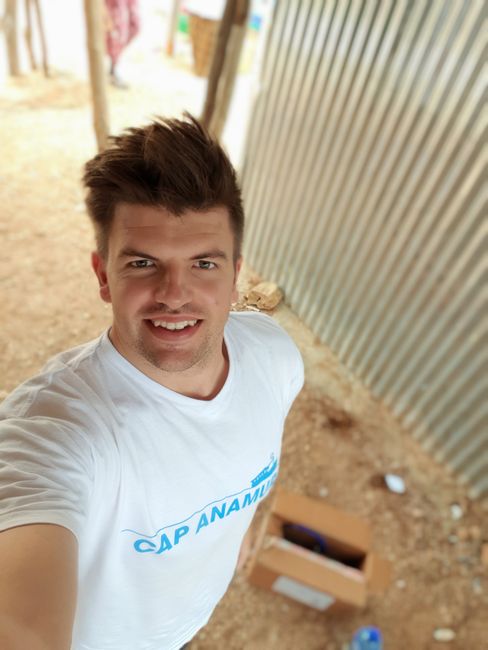Imagine you arrive in a village and no one is there
ຈັດພີມມາ: 05.10.2018
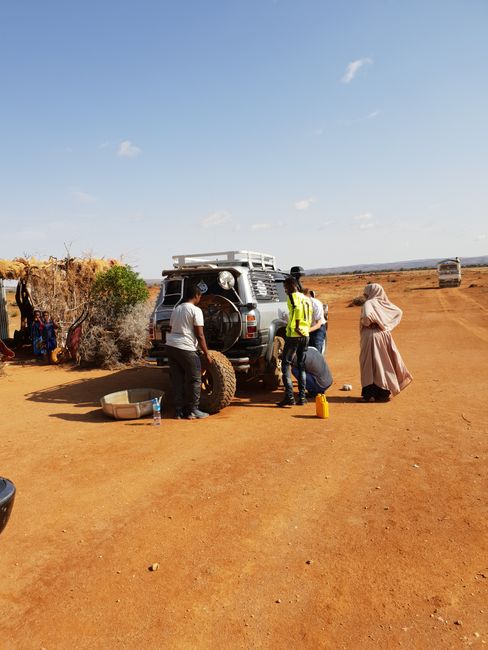
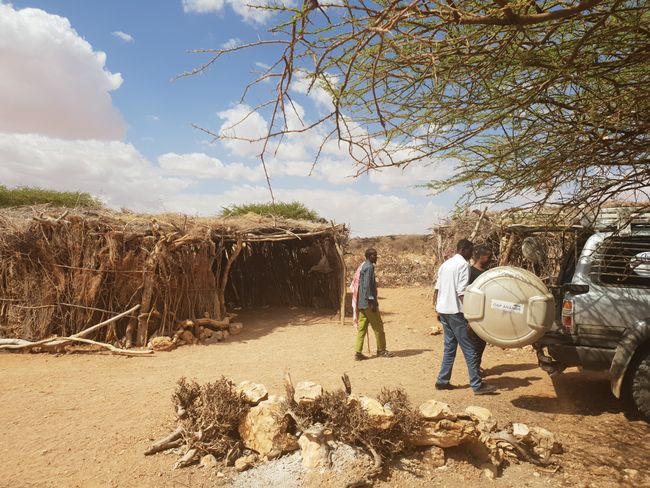
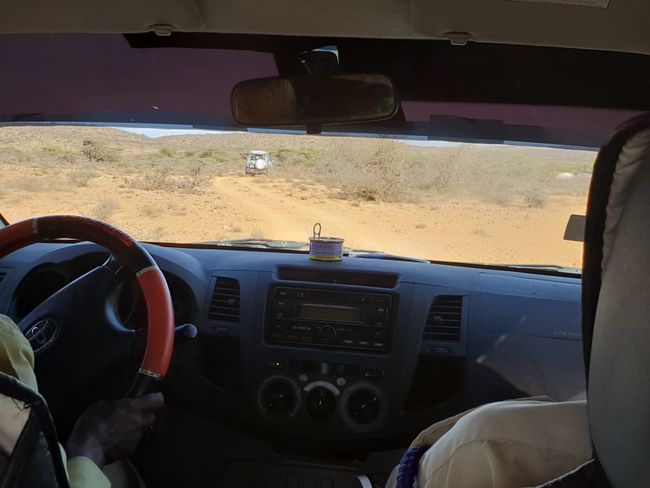
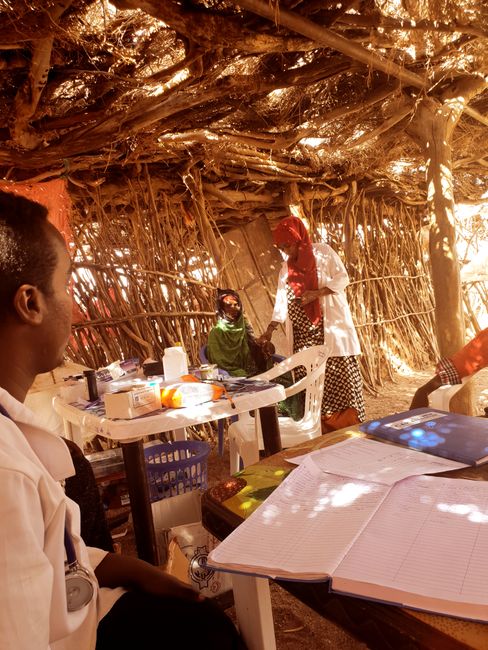
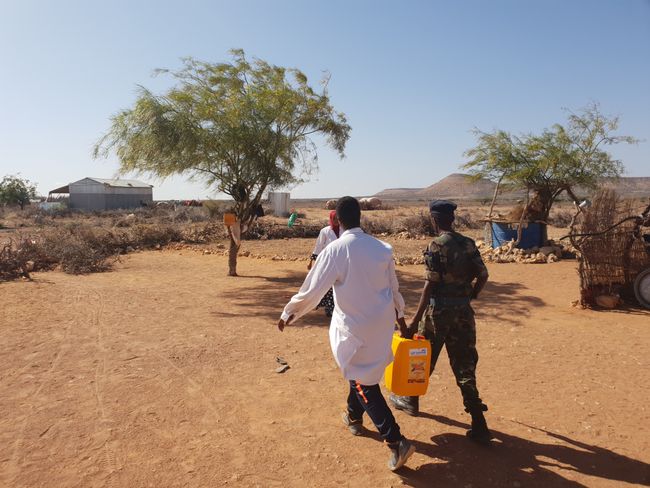
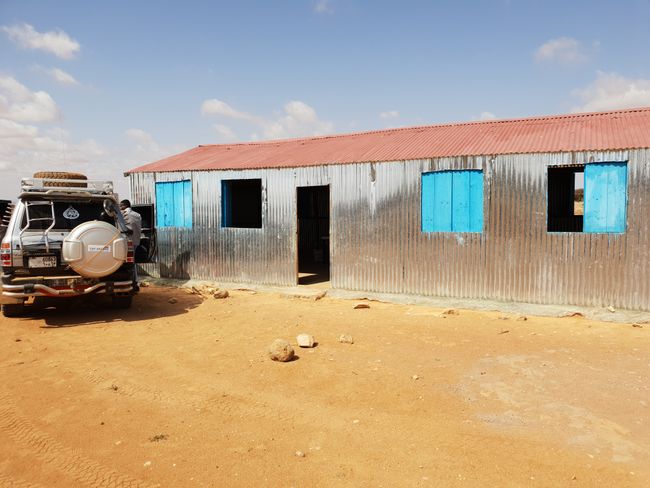
ຈອງຈົດຫມາຍຂ່າວ
If you can't make it to us, we'll come to you. That could be the motto of our Mobile Clinic. It all started with the idea that most people here live far from our hospital and have to walk long distances to access medical care. After initial problems, our Mobile Clinic started in mid-July and has been visiting nine different villages in our region for five days a week since then. The staff includes a doctor, a nurse, an auxiliary, and a driver.
The team starts together at 7 a.m. and travels on dusty tracks, dried-up riverbeds, and rough terrain for up to three hours to reach remote villages. Upon arrival, depending on the location, we find ourselves in wooden huts, classrooms, or community spaces that are made available to us.
Then it's time to set up the 'doctor's office', unload the medication boxes, set up two tables, and provide the villagers with a filled water canister.
At the first table, patient and vital data is recorded before moving on to the second table for a medical consultation. In addition to new medical knowledge, the Mobile Clinic also provides the opportunity to learn more about the living conditions and daily problems and challenges of the people.
It often happens that dehydrated and exhausted patients come to our 'doctor's office' and answer the question about the last sip of water with a shrug.
Many also answer the question by saying that the water doesn't taste good to them, as it is often contaminated, and they are happy to be able to drink a cup of clean water from us.
In addition to patients who have no access to fresh drinking water, patients with snake or hyena bites are also part of the patient population here. Pregnant women suffering from pregnancy complications are also common. A 35-year-old woman who is pregnant for the 15th time and has already given birth to 14 children stands out in particular.
By the way, the Mobile Clinic is also dependent on the seasons here. The dried-up riverbeds turn into rushing rivers during the rainy season, making it impossible for us to reach some villages. Recently, we arrived in a village where hardly any residents were to be found. Normally, up to 600 people live in the village, but when we arrived, we only found one family who was taking care of the village. The others had followed the rain and would come back as soon as there was enough rain in the village again.
So we set out to find the rest of the villagers. After a 30-minute drive, we found some residents of the village. They were still in the process of setting up new huts and establishing the village. They were also not informed about our visit and did not expect us, which is why we had hardly any patients. These are the challenges that our Mobile Clinic is facing and it shows that the processes here constantly need adjustments.
Overall, the people here are confronted with many problems that you can hardly imagine in Germany, and that shows me how much our help is needed here.
See you soon #Alexinsomaliland
ຈອງຈົດຫມາຍຂ່າວ
ຄໍາຕອບ (2)
Angie
Kann man echt kaum vorstellen.....dem Regen hinterher ziehen. 😲 und 15 mal schwanger unter solchen Umständen. Da gibt es nicht schnell mal was für "Pre- eclampsia " oder vonwegen Bettruhe wenn Komplokationen da sind. Alex, danke für den Einblick in das Leben dieser Menschen ❤Margreth
Menschen, wie wir, .die alles haben und bekommen was sie wollen, ist es unvorstellbar sich in die Lage dieser Menschen zu versetzen,deshalb ist es schön, das du uns einen Einblick ,über das Leben dieser Menschen und eurer Arbeit übermittelst und teilhaben lässt. und alles Gute weiterhin dem ganzen Team.

